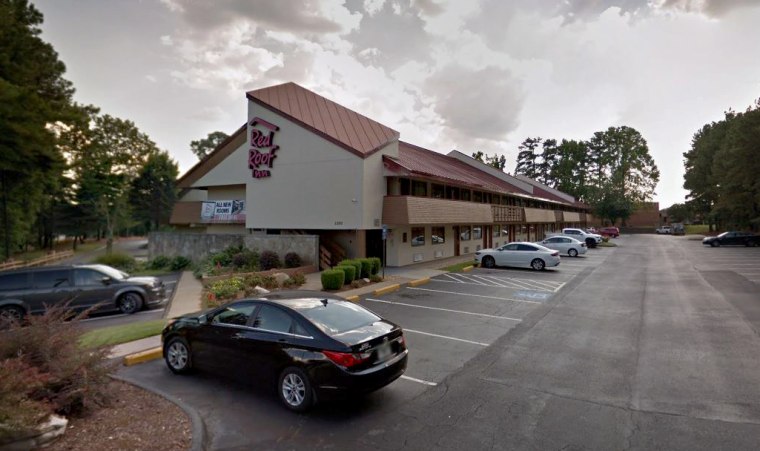Four women who say they were for years victims of sex trafficking are suing a group of Atlanta-area hotels where they allege some employees were complicit in the crime.
The women, identified as Jane Does 1-4 in a lawsuit, say they were trafficked at a Red Roof Inn in Smyrna, a Suburban Extended Stay in Chamblee, a La Quinta Inn in Alpharetta, and an Extended Stay America in Atlanta between 2010 and 2016.
“We believe these hotels were taking profits over the most vulnerable people,” Patrick McDonough, a lead attorney on the case, told NBC News. “At the same hotel you would have a victim in a short period of time being sold five, 10, 20 times a day.”
The suit filed in federal court in Georgia on Monday alleges that the sex traffickers paid some of the hotels' employees to turn a blind eye to their criminal conduct. It also claims that some employees acted as “lookouts” for the traffickers, alerting them when other guests grew suspicious or police were called.
The plaintiffs' lawyers are not providing any identifying information about the women, citing concerns for their safety.
Extended Stay America did not respond to inquiries. The other chains issued statements condemning human trafficking and saying they are working to prevent the crime in their hotels. At least two of the individual hotels named in the suit, the Red Roof Inn and Suburban Extended Stay, were franchises at the time of the alleged trafficking.
The complaint says that at one hotel, employees gave sex traffickers rooms near the back exit of the hotel, so people could easily come in and out without drawing attention. At another hotel, the suit says that when one of the victims told an employee she was being trafficked in an attempt to escape, instead of providing help the employee offered her lingerie that the hotel sold.
McDonough said it wasn’t just hotel employees who were complicit. “It goes up to the hotel owner, up to the brands,” he said. “Our position is they knew or they certainly should have known.”
Jonathan Tonge, another attorney representing the four women, told NBC News the hotels benefited by making money from the traffickers' paying for the rooms.
The plaintiffs are seeking damages and hoping to show that hotels can’t get away with such behavior, their lawyers said.
“They want to do something that will help future victims,” McDonough said. “Their goal is that because of this, when hotels are analyzing profits and losses, they’re not just looking at room rates, but also looking at safe environments.”

